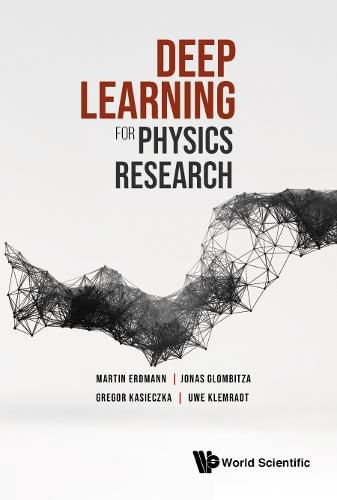Readings Newsletter
Become a Readings Member to make your shopping experience even easier.
Sign in or sign up for free!
You’re not far away from qualifying for FREE standard shipping within Australia
You’ve qualified for FREE standard shipping within Australia
The cart is loading…






This title is printed to order. This book may have been self-published. If so, we cannot guarantee the quality of the content. In the main most books will have gone through the editing process however some may not. We therefore suggest that you be aware of this before ordering this book. If in doubt check either the author or publisher’s details as we are unable to accept any returns unless they are faulty. Please contact us if you have any questions.
A core principle of physics is knowledge gained from data. Thus, deep learning has instantly entered physics and may become a new paradigm in basic and applied research.This textbook addresses physics students and physicists who want to understand what deep learning actually means, and what is the potential for their own scientific projects. Being familiar with linear algebra and parameter optimization is sufficient to jump-start deep learning. Adopting a pragmatic approach, basic and advanced applications in physics research are described. Also offered are simple hands-on exercises for implementing deep networks for which python code and training data can be downloaded.
$9.00 standard shipping within Australia
FREE standard shipping within Australia for orders over $100.00
Express & International shipping calculated at checkout
This title is printed to order. This book may have been self-published. If so, we cannot guarantee the quality of the content. In the main most books will have gone through the editing process however some may not. We therefore suggest that you be aware of this before ordering this book. If in doubt check either the author or publisher’s details as we are unable to accept any returns unless they are faulty. Please contact us if you have any questions.
A core principle of physics is knowledge gained from data. Thus, deep learning has instantly entered physics and may become a new paradigm in basic and applied research.This textbook addresses physics students and physicists who want to understand what deep learning actually means, and what is the potential for their own scientific projects. Being familiar with linear algebra and parameter optimization is sufficient to jump-start deep learning. Adopting a pragmatic approach, basic and advanced applications in physics research are described. Also offered are simple hands-on exercises for implementing deep networks for which python code and training data can be downloaded.